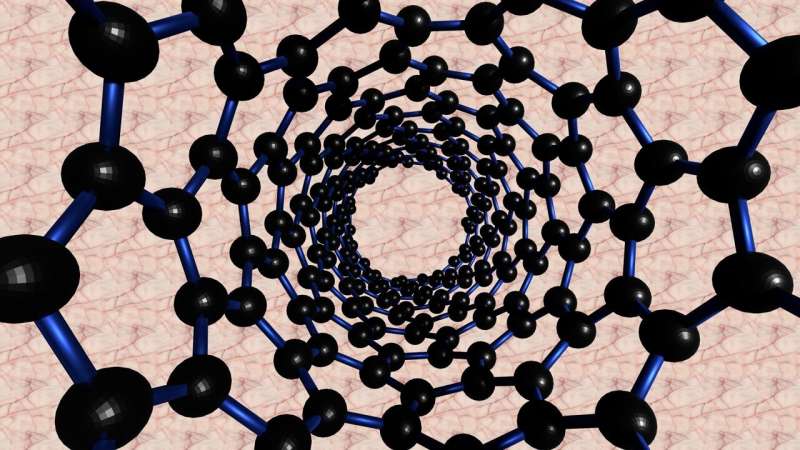This article has been reviewed according to Science X's editorial process and policies. Editors have highlighted the following attributes while ensuring the content's credibility:
fact-checked
peer-reviewed publication
trusted source
proofread
New research may make future design of nanotechnology safer with fewer side effects

A new study, published in Nature Nanotechnology, may offer a strategy that mitigates negative side effects associated with intravenous injection of nanoparticles commonly used in medicine.
"Nanotechnology's main advantage over conventional medical treatments is its ability to more precisely target tissues, such as cancer cells targeted by chemotherapy. However, when nanoparticles are injected, they can activate part of the immune system called complement," said senior author Dmitri Simberg, Ph.D., professor of Nanomedicine and Nanosafety at the University of Colorado Skaggs School of Pharmacy on the University of Colorado Anschutz Medical Campus.
Complement is a group of proteins in the immune system that recognize and neutralize bacteria and viruses, including nanoparticles which are foreign to the body. As a result, nanoparticles are attacked by immune cells triggering side effects that include shortness of breath, elevated heart rate, fever, hypotension, and, in rare cases, anaphylactic shock.
"The activation of the immune system after injection of nanoparticles can be challenging to understand and prevent. This research is one step closer to providing a better understanding and a solution for people to receive the benefits of nanoparticles without side effects," said Simberg, who is also the co-director of the Colorado Center for Nanomedicine and Nanosafety Co-Director.
The researchers say while some progress has been made in mitigating adverse reactions through slow infusion and premedication with steroids and antihistamines, a significant number of people still experience reactions.
"The goal is to prevent, avoid and mitigate adverse reactions and immune activation," Simberg adds.
To do so, Simberg's research team collaborated with Michael Holers, M.D., at the University of Colorado School of Medicine and the Medical University of South Carolina to study the impact of complement inhibitors injected with nanoparticles in animal models.
Specifically, the study focuses on an interesting group of complement inhibitors (called "regulators"). The research showed promising results.
Simberg and colleagues observed that the regulators being studied effectively inhibited complement activation by nanoparticles in human serum in vitro and animal models. Specifically, when injected at very low doses, the regulators completely and safely blocked activation of complement by nanoparticles in the animal models used. According to the authors, this is significant because when nanoparticles activate complement, the resulting immune response can not only cause an adverse reaction but it can also reduce the efficacy of nanomedicines.
This research also provides a better understanding of why and how complement regulators could help the body respond more favorably to nanoparticles. The study team observed that of the trillions of nanoparticles entering the blood in a standard injection, only a small fraction activated complement. Complement regulators worked as soon as nanoparticles started activating complement, thereby promptly mitigating immune activation.
"These results suggest we have an exciting opportunity to explore how to further optimize the use of regulators with nanoparticles, with the goal of improving the efficacy and tolerability of multiple nanotechnology-based therapeutics and vaccines," Simberg said.
The researchers say the next step is to test the complement inhibitors with multiple nanoparticles and in difference disease models to fully understand the potential of this approach with the ultimate goal to apply the research in a clinical setting.
More information: Inhibition of Acute Complement Responses Toward Bolus-Injected Nanoparticles by Targeted, Short-Circulating Regulatory Proteins, Nature Nanotechnology (2023). DOI: 10.1038/s41565-023-01514-z. www.nature.com/articles/s41565-023-01514-z
Journal information: Nature Nanotechnology
Provided by CU Anschutz Medical Campus




















